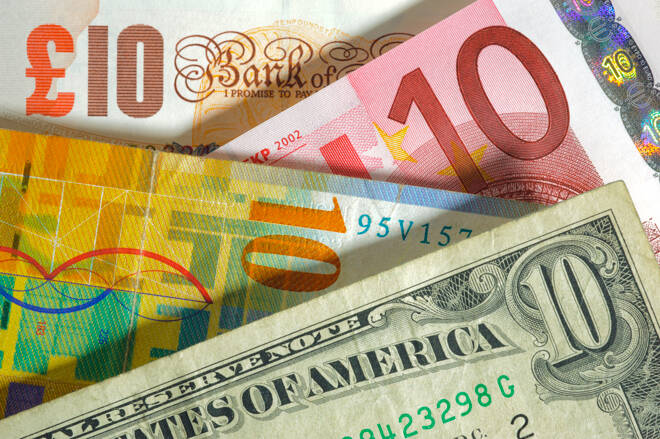Advertisement
Advertisement
Economic Data Puts the Pound and the U.S Dollar in Focus
By:
While consumer sentiment figures from the U.S will draw interest, GDP and manufacturing production figures from the UK will be the key stats of the day.
Earlier in the Day:
It was a busier start to the Asian session. The Kiwi Dollar was in action this morning, as the markets responded further to U.S inflation figures from Thursday.
For the Kiwi Dollar
In January, the Business PMI fell from 53.7 to 52.1. Of greater influence, however, were electronic card retail sales figures.
In January, electronic card retail sales jumped by 3.0%, Card retail sales had risen by 0.3% in December. According to NZ Stats,
- By category, spending on durables (+3.3%), and consumables (+1.8%) saw the largest increases in Kiwi Dollar terms.
- While fuel spending (+2.7%) also increased, spending on motor vehicles (excluding fuel) slipped by 0.4%.
- There was no month-on-month change in spending on apparel.
The Kiwi Dollar moved from $0.66652 to $0.66703 upon release of the figures. At the time of writing, the Kiwi Dollar was up by 0.05% to $0.6676.
Elsewhere
At the time of writing, the Japanese Yen was down by 0.03% to ¥116.050 against the U.S Dollar, with the Aussie Dollar down by 0.03% to $0.7165.
The Day Ahead
For the EUR
It’s a particularly quiet day ahead on the economic calendar. There are no material stats due out of the Eurozone to provide the EUR with direction.
At the time of writing, the EUR was flat at $1.1428.
For the Pound
It’s also a particularly busy day ahead on the economic calendar. Key stats include GDP and industrial and manufacturing production figures. Trade data for January is also due out but should have a muted impact on the Pound.
At the time of writing, the Pound was up by 0.04% to $1.3562.
Across the Pond
It’s a relatively quiet day on the economic calendar. Consumer sentiment figures for February will draw interest late in the day. Rising inflation and the prospects of rising interest rates could test consumers mid-way through the quarter.
On Thursday, the U.S Dollar Spot Index rose by 0.20% to end the day at 95.681.
For the Loonie
It’s also a quiet day ahead. There are no material stats due out of Canada to provide the Loonie with direction. The lack of stats will leave market risk sentiment to provide direction.
At the time of writing, the Loonie was up by 0.02% to C$1.2717 against the U.S Dollar.
For a look at all of today’s economic events, check out our economic calendar.
About the Author
Bob Masonauthor
With over 28 years of experience in the financial industry, Bob has worked with various global rating agencies and multinational banks. Currently he is covering currencies, commodities, alternative asset classes and global equities, focusing mostly on European and Asian markets.
Advertisement
